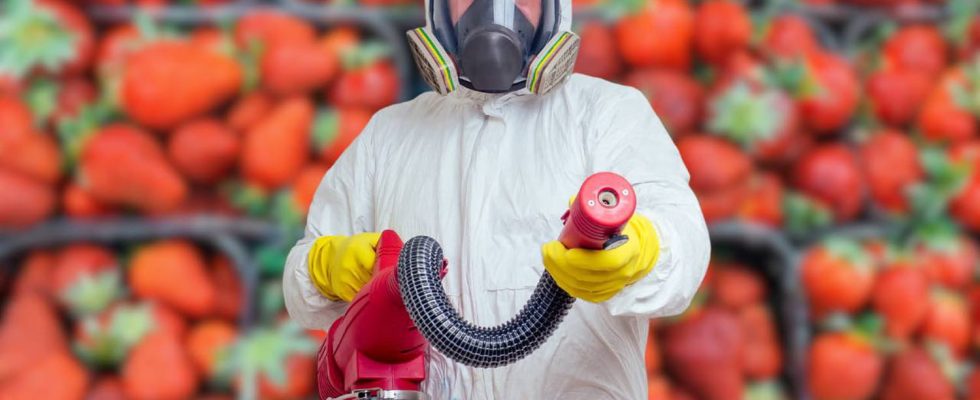Strawberries from this country contain a large amount of pesticides, which are dangerous for health and the environment. Here’s how to recognize them.
A German test has shown that strawberries from Spain are sadly full of pesticides. This health problem for those who consume them regularly is not the only one. The massive use of pesticides also has a negative impact on the environment. Let’s see why.
The strawberries in question come from Spain, more precisely from the province of Huelva. This was revealed in a test by the German consumer magazine “Öko Test”. The magazine tests various market products every month, and recently looked at strawberries sold in Germany. Of the 14 packages analyzed, all came from Huelva, except for one which came from Egypt. The magazine’s team carried out laboratory analyzes on the selected fruits.
Test results
What were the results ? The data provided is shocking: many of the strawberries analyzed, although there were some exceptions, contained a huge amount of pesticides. One particular brand had up to 7 in the same pack. Of the 14 fruits analyzed, 8 were contaminated with pesticides. Among these, the best known and present in the samples in question are Ethirimol and Cyflumetofen.
The first is a chemical that acts as a fungicide. This substance is toxic to bees and, get this: banned in the European Union. One therefore wonders how it could have been used on Spanish strawberries. A plausible explanation is that the substance initially used was Bupirimat, which then degraded into Ethirimol. Bupirimat is also one of the pesticides found in strawberries. This is not good news, because this substance is considered carcinogenic.
The situation is also worrying for strawberries from organic crops. In one of the organic samples, in fact, the analyzes made it possible to detect a proportion, although within the legal limits, of spinosad. It is a substance that can be used, in certain situations, even in organic crops. However, it is toxic to bees.
Spanish strawberries are a problem for the environment
Even the few strawberries that were pesticide-free posed problems, especially environmental ones. This is due to the fact that these fruits come from the province of Huelva, Andalusia. There, farmers grow them in huge fields covered with plastic sheeting.
But that’s not all, because one kilo of strawberries needs about 300 liters of water to grow. However, Andalusia is an arid region where it rains less and less. To gain access to water, farmers therefore dig deep illegal wells that gradually deplete the region’s water reserves.
It is also a problem for the 6 million migratory birds that stop in the national park in the region to drink. Once ready, the strawberries are transported all over Europe overland, traveling thousands of kilometres. This obviously generates pollution due to the means of transport used. Already in 2021, the European Court of Justice had condemned Spain because of the serious environmental impact of the cultivation of these fruits.
So, what can we do on our scale to solve this problem? To protect the environment and our health, it is strongly recommended to consume strawberries from organic farming, by reading the labels carefully. Better yet, let’s choose fruits that are as local as possible, French or even on a short circuit (kilometer zero). In any case, the strawberries must be washed well to get rid of any pesticides they may have on the surface.
